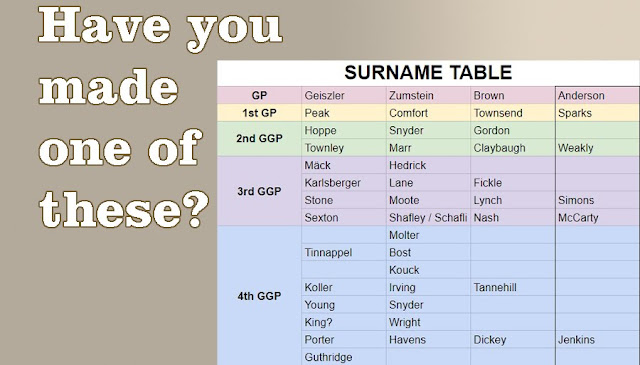Are You Reviewing the Research of Others?
Do you ever encounter research that someone else has done on a new-to-you ancestor? Chances are you have. Before you start attaching all of that research to your tree - STOP, and
Peer Review
When you come across another genealogist’s research, you should review what they discovered to ensure that it’s accurate.
Genealogists can make mistakes, even on famous people.
In 2015, Megan Smolenyak a noted genealogist who has appeared on Who Do You Think You Are? and Finding Your Roots discovered a mistake on Hillary Clinton’s family tree. The short version of the story is two children of the same name were born in Pennsylvania in the 1880s became confused as Hillary Clinton’s grandmother. If a celebrity's family lines can have flaws, so can ours.
The best thing that you can do as you climb your family tree is peer-review of what has already been discovered.
Peer-review is a common practice in many sciences.
Scientists will review each other's research before publication to identify any potential errors that should be corrected. After publication, others will attempt to replicate that research and see if they come up with the same result.
In genealogy, that rarely happens. Far too often, people accept family trees from Aunt Ethel or a stranger online as fact without validating the research. That’s really unfortunate because every genealogist has made mistakes.
EVERY. SINGLE. ONE.
I've shared in the past about the mistake I made of confusing two Caroline Puseckers.
Beyond innocent mistakes, some family histories are pure fabrications or based on books that have been proved to be frauds. Without others reviewing the work, these falsehood continue to be perpetuated.
Here are a few quick tips to review the research of others;
- Research as if you didn’t know the other research exists
- Scrutinize every fact you find
- Attempt to get multiple sources
- Understand the evidentiary weight given to various sources
- Note conflicts and attempt to resolve them.
- Scrutinize the other research
- What were their theories?
- What were their sources?
- Did you replicate their research?
In this video, I go into a little more details about the steps. Check it out!
The point of Peer Review is to reduce the incidents of false ancestor claims
When you implement peer reviewing into your methodology, you’re well on your way to becoming a better genealogist!




Comments
Post a Comment